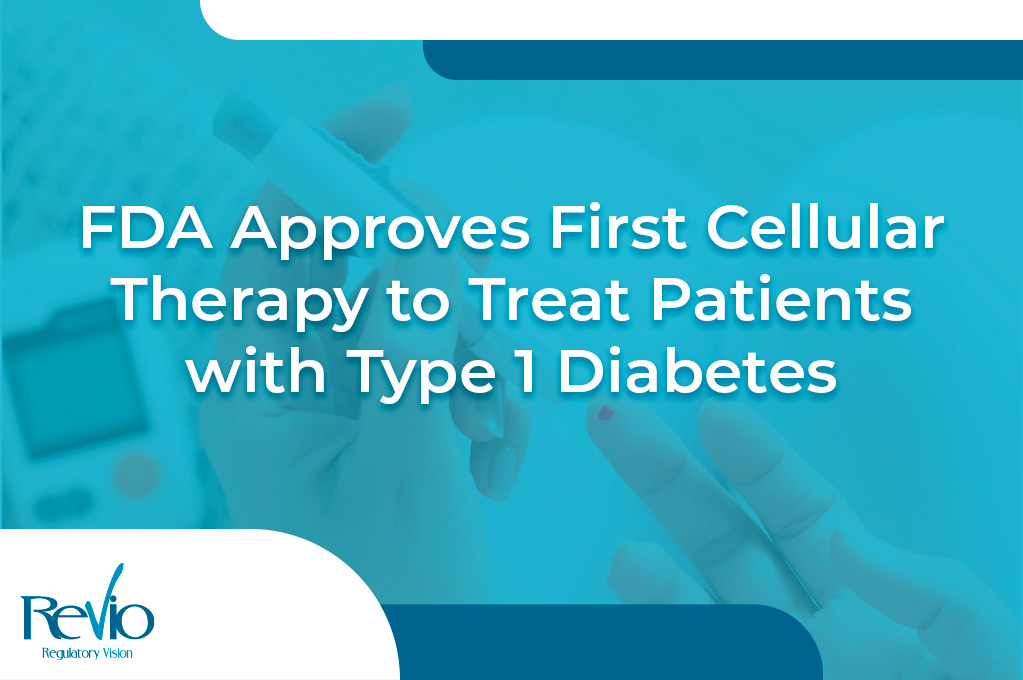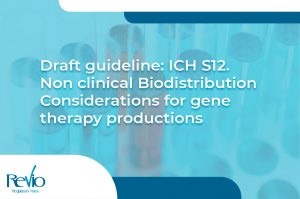FDA Approves First Cellular Therapy to Treat Patients with Type 1 Diabetes
Recently, the FDA granted approval to the first allogeneic (donor) pancreatic islet cellular therapy made from deceased donor pancreatic cells for the treatment of type 1 diabetes, Lantrida, CellTrans Inc. “Today’s approval, the first-ever cell therapy to treat patients with type 1 diabetes, provides individuals living with type 1 diabetes and recurrent severe hypoglycemia an additional treatment option to help achieve target blood glucose levels.”
Type 1 diabetes
According to Peter Marks, M.D., Ph.D., director of the FDA’s Center for Biologics Evaluation and Research, “Severe hypoglycemia is a dangerous condition that can lead to injuries resulting from loss of consciousness or seizures.”
The FDA describes Type 1 diabetes as, a chronic autoimmune disease that requires lifelong care including requiring insulin, either through multiple daily injections or continuous infusion using a pump, every day to live. Additionally, individuals with type 1 diabetes regularly monitor their blood glucose levels multiple times each day to effectively manage their condition.
Lantidra
Lantidra is administered as a single infusion into the hepatic (liver) portal vein. Depending on the patient’s response to the initial dosage, an additional infusion of Lantidra may be administered. The primary mechanism of action of Lantidra is believed to be the secretion of insulin by the infused allogeneic islet beta cells. In certain individuals diagnosed with type 1 diabetes, these introduced cells have the capability to generate sufficient insulin, thereby eliminating the necessity for insulin administration (via injections or pumps) to regulate their blood glucose levels.
Effectiveness and safety
Lantidra’s safety and efficacy were assessed in two non-randomized, single-arm trials involving 30 participants diagnosed with type 1 diabetes and hypoglycemic unawareness. Each participant received a minimum of one infusion and a maximum of three infusions as part of the studies.
In total, 21 participants experienced a period of one year or longer during which they did not require insulin. Among them, 11 participants did not need insulin for a duration ranging from one to five years, while 10 participants managed to stay off insulin for more than five years. However, there were five participants who did not achieve any period of independence from insulin.
Negative/Adverse side effects
The most common adverse reactions included nausea, fatigue, anaemia, diarrhoea, and abdominal pain. Most participants experienced at least one serious adverse reaction related to the infusion of the medicine and the use of immunosuppressive medications needed to maintain islet cell viability. Certain severe adverse reactions required discontinuation of these immunosuppressive medications, leading to the loss of islet cell function and the ability to be independent from insulin.
The adverse reactions linked to Lantidra varied among participants, depending on factors such as the number of infusions they received and the duration of their follow-up. It’s important to note that these reactions may not accurately reflect the rates observed in real-world practice.
The official FDA website contains more information if you want to know more or to consult the complete updated information related to the Approval of the First Cellular Therapy to Treat Patients with Type 1 Diabetes, you can check it by clicking here!
Also, we have a dedicated webpage to bring you the latest updates, guidance and developments. You can also follow us on LinkedIn.
We hope you find this useful and of interest. If you would like to discuss any of these updates with the team at REVIO, please get in touch here.




